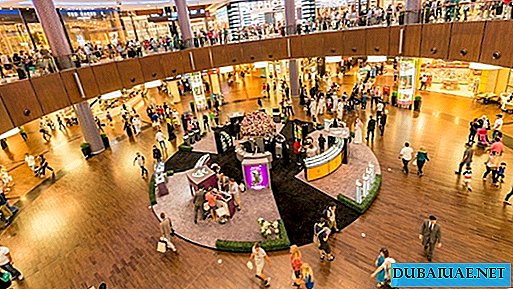Company phone: +971 4 298 9900
Interviewed: Anastasia Lelyukh
Ahmed Ibrahim Advocates & Legal Consultants Law Firm specializes in such areas of law as: banking; resolving issues related to debt and its collection; rent, real estate, insurance, intellectual property, trademarks, commercial institutions, offshore companies, e-commerce, international sales, maritime law, as well as criminal law and its aspects related to money laundering, criminal offenses, drugs, customs crimes, crimes in the field of information technology, violations of immigration law and much, much more.
One of the partners and founders of Ahmed Ibrahim Advocates & Legal Consultants is Mr. Mohammed Al Bederi, who also holds the position of lawyer and consultant. Mr. Al Bederi has more than 30 years of legal practice in the UAE, including working as a representative of state authority in the courts of the Egyptian Arab Republic. Currently, he is a legal adviser to several banks and large businesses in the UAE (First Gulf Bank, Arab African International Bank, Commercial International Bank, Habib Zurich AG Bank). Mr. Al Bederi is also a recognized arbitrator at the Sharjah Chamber of Commerce and a member of the Law Society in London.
Mr. Al Bederi, please tell us more about your company.
Our company has been working in the UAE for over 35 years, providing lawyer and consulting services. Recently, we created a new structure in the company, in the formation of which my partners, Messrs. Ahmed and Abu Omar, took part. Our new division specializes in private international law. This means that we can provide legal assistance to all foreign citizens and investors on any issues that they may encounter while in the UAE. As a remark, I’ll say that we would also like to provide services to the Russian-speaking community living in the country.
Please comment on the recent information in the local media that the UAE will soon be banned even from drinking alcohol without a license. But what about the tourists who come here on vacation for a short time? After all, they are unlikely to have time to get such a license.
There is nothing new in the fact that expatriates living in the UAE and having a resident visa must necessarily get a license to buy alcohol. It has always been and will be. As for tourists, in order to avoid trouble, they should not drink alcohol in public places - on the street, in shopping centers, cafes and restaurants, unless the latter are located in hotels.
In addition, I believe that this issue should be attended not only by tourists, but also by the airlines that deliver tourists to the UAE. It seems to me that it will be very appropriate and useful to notify passengers about the situation with alcohol in the country and to warn them how to and should not behave. This will help everyone, and prevent the emergence of many problems and unpleasant situations.
Regarding alcohol consumption in the UAE. If a person is not a Muslim by religion, he can drink alcohol in the UAE, while at home, or in a hotel bar or restaurant. Of course, he should not drive while intoxicated. The law provides for the following penalties for driving while intoxicated in the UAE: fine, imprisonment and / or deportation, confiscation of a car (Federal Law of the UAE No. 21, 1995). The minimum fine for driving a vehicle while intoxicated is 20 thousand dirhams (US $ 5,464) and / or imprisonment.
If a person is a Muslim, then he is naturally forbidden to drink alcohol in the UAE. In the case of detention in the territory of the Emirates of a Muslim in a state of intoxication, he will be punished in accordance with Sharia.
Please tell us about the use of narcotic substances in the UAE, and what penalties a foreign citizen may incur by consuming them.
The possession, use, purchase or sale of any type of drug, in any quantity, as well as the positive result of a drug test for any drug-containing substance in the UAE is a crime.
The punishment for these crimes will be imprisonment, fines and deportation. The minimum term of imprisonment is 4 years (Federal Law of the UAE No. 3, 1987). Citizens selling and selling drugs may be sentenced to long sentences of up to life imprisonment. The number of years that a foreign citizen will spend in a UAE prison before being deported from the country depends on the agreement on this issue between the UAE and his homeland.
If a foreign citizen in transit found himself in the UAE, flying from one country to another, and, at the same time, was under the influence of drugs, then he will be detained by the authorities and detained. After all, the transit zone is not a neutral zone. While staying on it, you are still in the territory of the country to which this zone belongs, respectively, are required to obey its laws.
Please tell me if there are any changes in the UAE immigration law?
At the moment, no new changes have been made to the UAE immigration law. An expatriate who wishes to live in the UAE can receive a resident visa in two ways: the first by getting a job here, and the second by becoming an investor. He can also come to the UAE for a much shorter period as a tourist.
Is there a death penalty in the UAE, and for which crimes does it apply?
Yes, the death penalty is in the Emirates, but it is awarded depending on the gravity of the crime. The difference is how the person committed the crime, for example, murder: through negligence or intentionally. If a person drove a car at high speed and hit a pedestrian - this is a case of reckless killing, he did not want to do this and did not plan it in advance. In this case, he will be sentenced to pay the family of the deceased “diya” or “hard-earned money” in the amount of 200 thousand dirhams (US $ 54 644), he will also be sentenced by the court, the severity of which will depend on what driver’s mistake caused the death of a pedestrian. If this person is a good driver, he had neither violations nor penalties for a long practice of driving, and it was not he who caused the accident or an accident, but an external reason, such as that that exploded while driving a tire, then the penalty will be different for him. If a person has committed an accident while in a state of alcohol or drug intoxication, then the punishment will, again, be different. Most likely, he will not be sentenced to death, but will receive a long prison term and will be required to pay a large fine.
Next, mention should be made of premeditated murder, which also has several types. For example, in the case of murder in a state of passion (strong emotional disturbance, which was caused by the actions of the victim), the law provides for imprisonment for up to 10 years. It also matters where the wound was inflicted. If a person plans to kill in advance, then the punishment for him will be more severe, and most likely it will be the death penalty.
Please comment on the UAE Family Code.
UAE authorities allow foreigners to marry citizens of a male country, but not vice versa.
In the event of a divorce between a citizen of the Emirates and a foreigner, custody of the children, in accordance with the civil law of the UAE, will most likely be received by the wife, even if she is a citizen of another country, but on condition that she remains in the country. The age of the children will be taken into account. However, if the spouse wants to leave the country, then custody of the children will go in favor of the father. If he does not mind, then the former spouse can take them with him.
In some cases, the spouse, if she does not want to stay in the country and considers it acceptable to leave the children to her father, may receive monetary compensation. Guardianship over children is awarded to the father in cases where the wife does not have a very good reputation, or a criminal case has been instituted against her, or she works at night.










